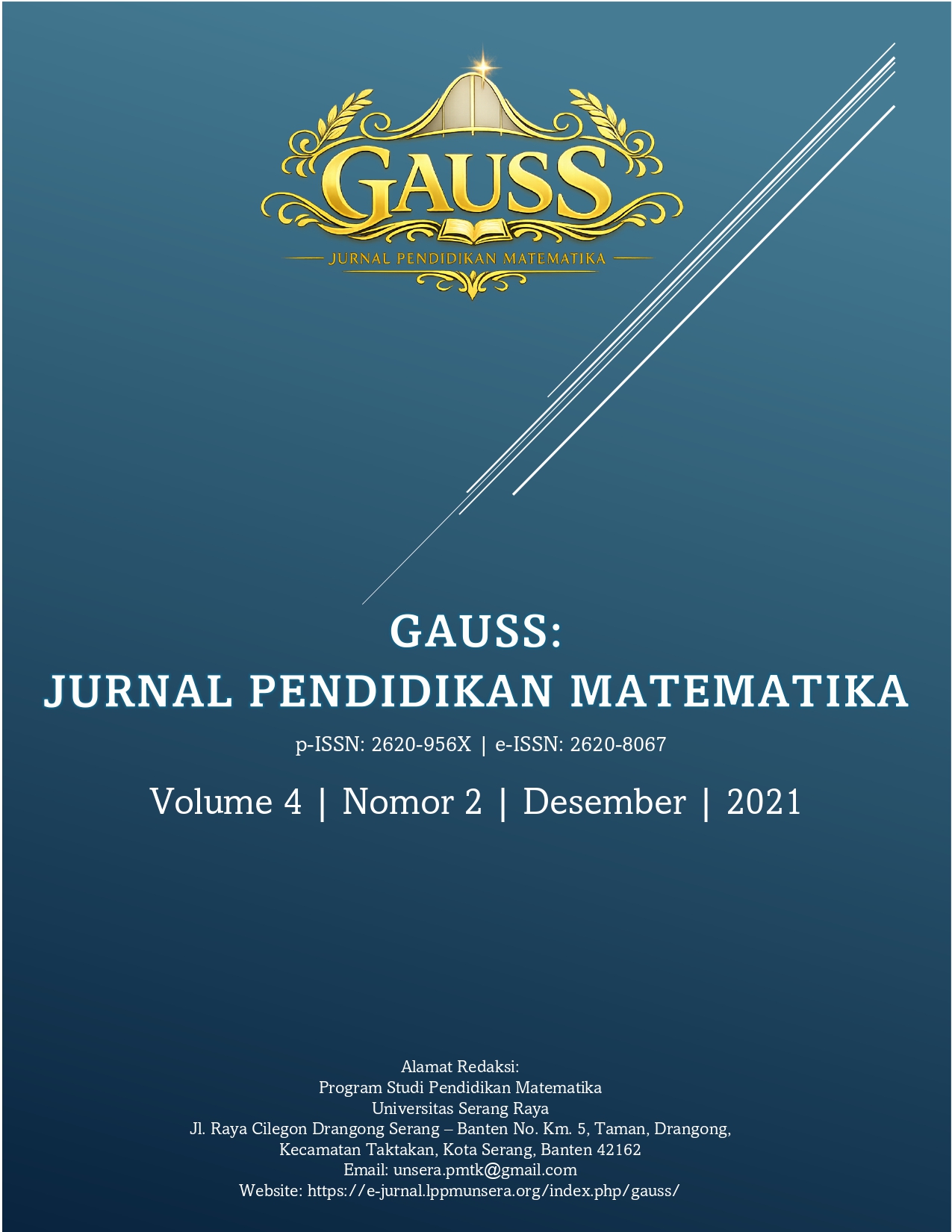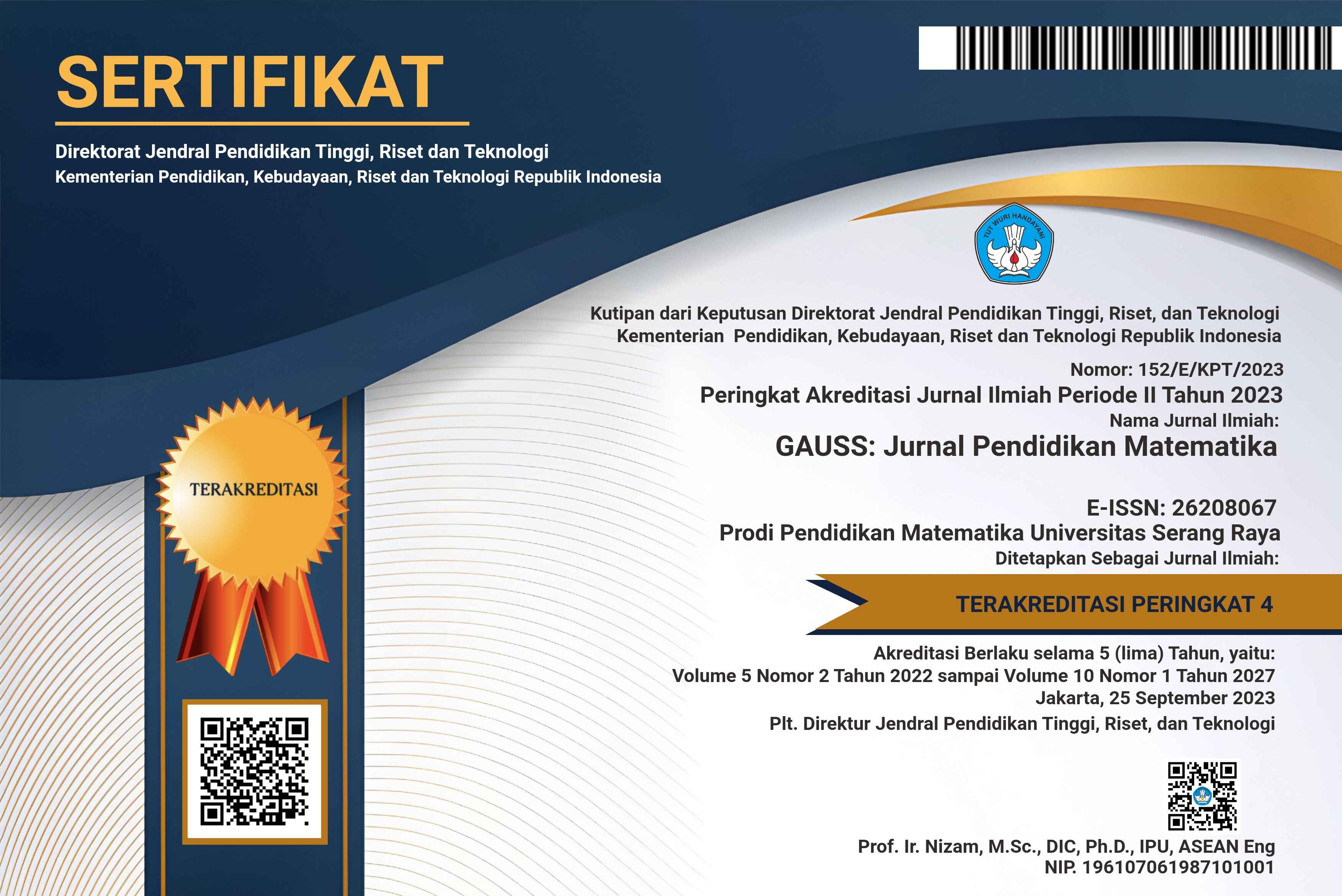Optimalisasi Penggunaan Teknologi Pembelajaran Mahasiswa Pendidikan Matematika UNMA Banten
DOI:
https://doi.org/10.30656/gauss.v4i2.3554Abstrak
Penelitian ini bertujuan untuk melihat optimalisasi penggunaan teknologi pembelajaran oleh mahasiswa program studi pendidikan matematika FKIP UNMA Banten?. Penelitian ini menggunakan pendekatan kualitatif dan jenis penelitian deskriptif. Pengambilan subyek penelitian menggunakan teknik purposif. Subyek dalam penelitian ini adalah mahasiswa program studi pendidikan matematika FKIP UNMA Banten yang duduk di semester 2 berjumlah 12 orang mahasiswa yang sedang mengambil mata kuliah aplikasi komputer pendukung pembelajaran. Kesimpulan dari penelitian ini yaitu 1. Penggunaan teknologi pembelajaran matematika oleh mahasiswa program studi pendidikan matematika FKIP UNMA Banten sudah dilakukan secara optimal. Hal ini dikarenakan ketersediaan fasilitas teknologi di kampus sudah memadai. 2. Subyek penelitian menggunakan teknologi pembelajaran berupa laptop, infokus, dan komputer. Laptop dan komputer sudah di instal dengan aplikasi penunjang seperti Software Microsoft mathematics dan Math Editor.
Unduhan
Diterbitkan
Terbitan
Bagian
Lisensi
Authors who publish articles in GAUSS : JURNAL PENDIDIKAN MATEMATIKA agree to the following terms:
- Authors retain copyright and grant the journal the right of first publication with the work simultaneously licensed under a Creative Commons Attribution-ShareAlike 4.0 International License that allows others to share the work with an acknowledgment of the work's authorship and initial publication in this journal.
- Authors are able to enter into separate, additional contractual arrangements for the non-exclusive distribution of the journal's published version of the work (e.g., post it to an institutional repository or publish it in a book), with an acknowledgment of its initial publication in this journal.
- Authors are permitted and encouraged to post their work online (e.g., in institutional repositories or on their website) before and during the submission process, as it can lead to productive exchanges, as well as earlier and greater citation of published work (See The Effect of Open Access).




